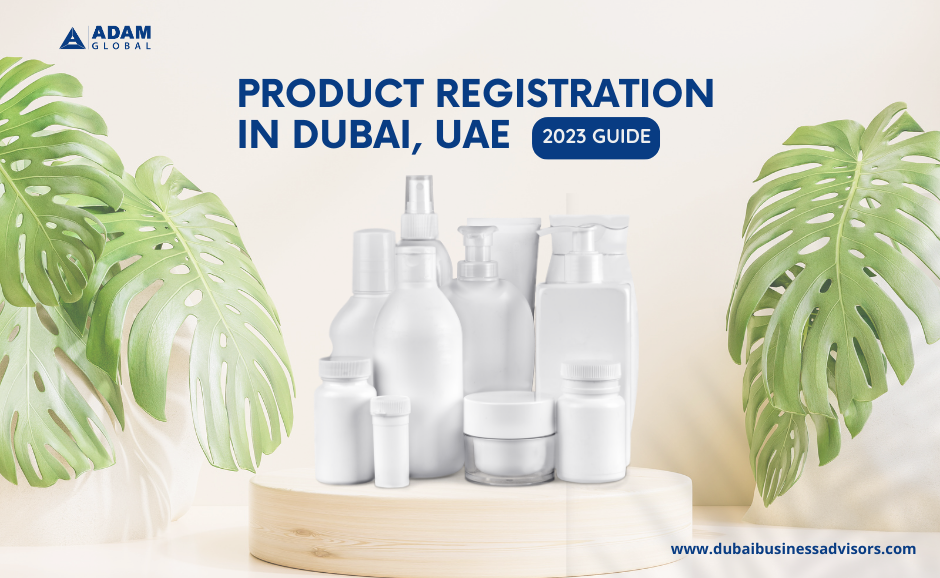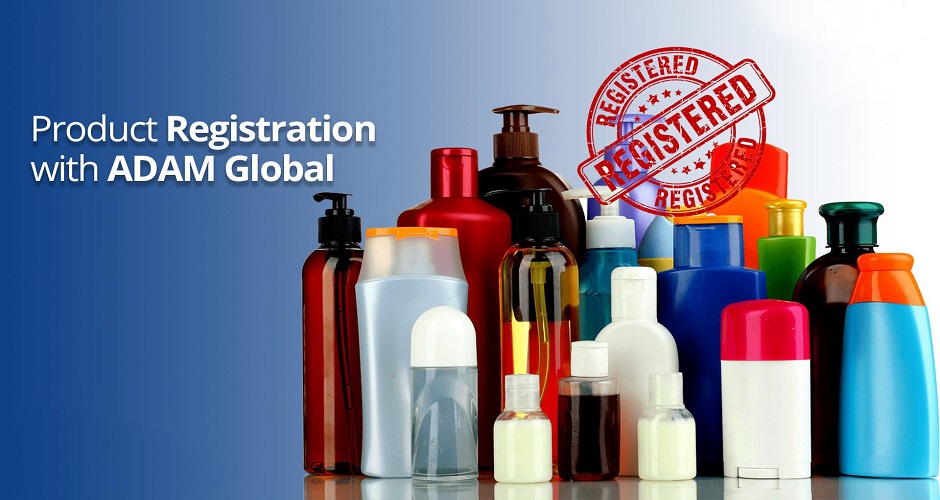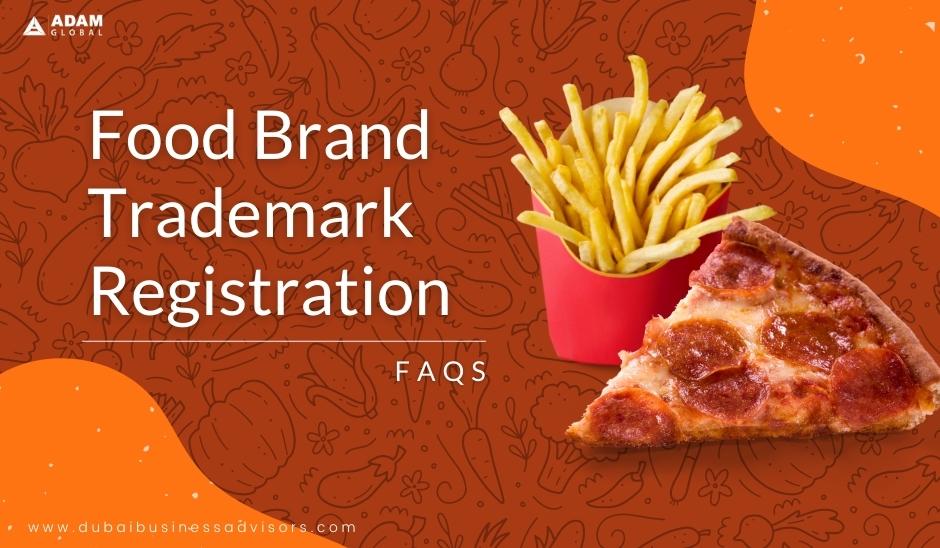Dubai, known for its luxurious skyline and bustling markets, serves as an inviting platform for entrepreneurs worldwide. The emirate’s business-friendly environment offers ample opportunities for merchants keen on importing, manufacturing, and distributing products. Recognizing the importance of maintaining product quality and consumer safety, the government of Dubai has streamlined a comprehensive product registration process.
In this comprehensive guide, we will delve into the ins and outs of product registration in Dubai, equipping you with the necessary tools to navigate the business landscape of the Emirates. Here’s what we will cover:
- Process of Product Registration in Dubai, UAE
- Which authority is responsible for product registration in Dubai?
- Which Products Require Registration in Dubai?
- What are the restricted products you cannot import easily?
- What steps are involved in bringing food products into Dubai?
- How Can Adam Global Streamline Your Product Registration and Importation Process in Dubai?
Process of product registration in Dubai, UAE
Product registration, a standardized procedure across the globe, involves obtaining approval from the competent governmental authority in a given jurisdiction. It’s the legal passport for a product to be imported, distributed, and sold in that region.
In Dubai, product registration is a meticulous process involving various authorities, including the health and safety section of Dubai Municipality, the Ministry of Health, and the Food Department. The central authority in this process, however, is the Dubai Municipality (DM).
Crucial Insights
Product registration ensures that each product, whether packaged food or cosmetics, carries the necessary information on its label. It’s a safeguard for consumers to have clear information about what they’re purchasing.
For instance, the Dubai Municipality conducts thorough checks for cosmetic products to identify harmful substances. Similarly, food products are scanned to ensure they’re safe for consumption and do not contain restricted elements.
Following is the step by step process:
Step 1: Company Formation and Trade License Acquisition
Before registering any product, ensure that your company is legally established in Dubai. Obtain the relevant trade license that corresponds with the type of products you plan to sell. This process involves the Department of Economic Development (DED) and might require additional permissions from sector-specific authorities.
Step 2: Open an Account with Dubai Municipality
Once your company is set up, open an account with the Dubai Municipality through their online portal. This account is essential for managing all aspects related to product registration. Submit the necessary documents, including your trade license and personal identification.
Step 3: Classification of Product
Classify your product according to the standards set by the UAE authorities. Understanding the product classification is essential, as different product categories may have varied requirements for registration. The classification can range from food items to cosmetics, health supplements, and electronics.
Step 4: Documentation and Compliance
Prepare all the documents required for your product’s category. Common documents include product labels, ingredient lists, and safety certificates. Ensure that the product complies with the local regulations and standards, such as the Emirates Conformity Assessment Scheme (ECAS) or the Emirates Standardization and Metrology Authority (ESMA) requirements.
Step 5: Label Assessment
Product labels must adhere to the UAE’s regulations. They should be in both Arabic and English, and provide information such as ingredients, expiration dates, and country of origin. Submit the label design to the relevant authorities for approval.
Step 6: Submission of Application and Required Documents
After collecting and preparing all required documents, submit the product registration application along with the relevant documents through the Dubai Municipality’s online portal. Ensure that you have filled in all the necessary details accurately to avoid delays.
Step 7: Lab Testing (if applicable)
Depending on the product category, lab testing may be necessary to confirm that your product complies with local standards and regulations. You will need to submit product samples to designated laboratories.
Step 8: Pay the Registration Fees
Once your application and documents are approved, you’ll need to pay the applicable product registration fees. This can usually be done online through the Dubai Municipality portal.
Step 9: Obtain the Product Registration Certificate
After the payment is verified and all other requirements are met, you will receive a Product Registration Certificate. This certificate permits you to legally distribute and sell the product in Dubai.
Step 10: Regular Compliance and Renewal
Stay abreast of any changes in regulations and make sure to renew your product registration certificate as needed. Regular compliance is vital to avoid fines and ensure the uninterrupted sale of your product.
Keep in mind that the above steps may vary depending on the type of product you are registering, and the regulatory landscape may change over time. Always consider seeking expert consultation to ensure seamless product registration in Dubai.
Which authority is responsible for product registration in Dubai?
Product registration in Dubai is crucial to eliminating the trade of counterfeit and potentially harmful products in the local market. This process also maintains product quality and ensures consumer safety. As such, the Dubai municipality regulates the entry of new products into the UAE market, further ensuring product quality through random testing and inspections. The Dubai Municipality is the primary authority responsible for regulating and overseeing product registration. With its vigilant regulatory practices, the Dubai Municipality helps maintain the high quality of products available in the market.
Which products need registration in Dubai?
Cosmetics
For cosmetic, perfumery, and personal care products, registration with the Dubai Municipality and compliance with the Emirates Conformity Assessment Scheme (ECAS) is mandatory. The ECAS is governed by the Emirates Authority for Standardization and Metrology (ESMA), which issues a Certificate of Conformity, essential for customs clearance and selling the products in the UAE.
Food Products
Food products must be registered with the Food Import and Re-Import System (FIRS). However, the importing company must first be registered with the Dubai Municipality. The FIRS ensures that all food-related products meet local standards and regulations before entering the market.
Pharmaceutical Products
Pharmaceutical and medical devices require an importation and distribution license from the Ministry of Health. Registration with both the Ministry and the Dubai Municipality is necessary. Companies can either obtain the licenses themselves or engage a local distributor registered with the authorities.
Other Products Requiring Registration
- Food supplements
- Electronic goods
- Sports equipment
- Herbal products
- Pet food
- Detergents
- Disinfectants
What are the restricted products you cannot import easily?
There are certain products that require additional approvals and stringent checks, including:
- Media Material
- Alcohol
- Material of Nuclear Energy
- Rough Diamonds
Certain products are bound by specific limitations and can only be sold to non-Muslims within areas or establishments that have been specifically designated for such sales. For example, packaging for products containing pork or that are pork-based must adhere to the general labeling regulations and explicitly indicate the presence of pork.
Regarding products containing alcohol or alcoholic beverages, these can only be brought into the country through licensed importers that operate their own retail outlets. Moreover, there are no additional labeling requirements for alcoholic products apart from what is normally mandated in the product’s country of origin.
Conversely, pet food packaging is required to bear the notice “Not suitable for human consumption.” It is also imperative for pet food labels to display the manufacturing and expiration dates.
Specific Standards to Take into Consideration
For instance, poultry products are routinely checked for salmonella, and if more than 20% of the samples test positive, the shipment is rejected. Alcohol importation is tightly regulated, with only authorized importers allowed to bring in alcoholic beverages.
Pork sales are also highly regulated, with clear identification needed on menus and in specific areas in supermarkets. The Ministry of Agriculture and Fisheries (MAF) regulates the importation of live animals and plants.
What steps are involved in bringing food products into Dubai?
Dubai boasts advanced air and seaport facilities, which facilitate swift customs processing. Every consignment of food is subject to an immediate visual examination to verify its compliance with labeling and expiration date regulations.
Trivial Non-Compliance
Should there be a trivial discrepancy, such as a minor labeling issue, the shipment might be granted entry, but only on an isolated basis and for restricted sale.
Grave Non-Compliance
For serious offenses such as the incorrect labeling of items containing pork, the consequences are harsh. These products are outrightly banned, and the names of the brands and importers might be disclosed to the public.
Guidelines for Importing Agricultural Produce into Dubai
For the importation of agricultural food items, securing an Import Certificate from the Dubai Municipality is essential. Furthermore, certain products demand supplementary authorization from the Food Control Section of the Public Health Department within the Dubai Municipality:
- Cereals such as wheat, rye flour, groats, and meal
- Broken rice and whole rice
- Beef cuts
- Pork cuts
- Chicken eggs
- Dairy and dairy-derived products
- Veal cuts
- Items derived from cereals
- Olive oil
- Fruit and vegetable-based products
- Sugarcane-based products
- Poultry meat cuts
- Wine
Documents required for the import of these goods:
- An approval letter from Dubai Municipality
- A declaration of the goods being imported
- A certificate of origin
- A detailed packing list
- The bill of lading
- The commercial invoice
- A valid license for the importer to deal in food products
Rules for Importing Food for Personal Consumption
Individuals, in addition to businesses, who wish to bring food items into Dubai for personal use must abide by certain protocols and paperwork requirements.
How Can Adam Global Streamline Your Product Registration and Importation Process in Dubai?
Navigating the maze of product registration and importation in Dubai can be an uphill battle. This is where Adam Global proves invaluable, offering a wide spectrum of services to ensure a seamless entry into Dubai’s vibrant market.
Our suite of services includes:
Assistance in Obtaining Business Licenses
We provide support in securing the necessary permits and licenses, confirming that your business is compliant with local laws and regulations.
Corporate Sponsorship Solutions
We offer solutions to help international companies establish their foothold in Dubai through collaboration with local partners.
Accounting Services
Our accounting services are designed to manage and streamline your financial records. We help ensure that your business adheres to accounting standards and regulations in Dubai, which is crucial for any company operating in a foreign country.
Visa Support
We take the stress out of obtaining visas for you and your staff, facilitating effortless travel to and within Dubai.
Expert Business Consulting Services
Our seasoned experts, with extensive industry knowledge, offer sage advice to optimize your business opportunities in Dubai.
Trademark Registration
We offer proficient services to protect your brand identity by registering your trademark in Dubai.
Procurement of Foreign Direct Investment License
We expertly navigate you through the process of obtaining a foreign direct investment license, creating avenues for significant investments in the region.
Anti-Money Laundering (AML) Services
Understanding and complying with anti-money laundering regulations is crucial in today’s global business landscape. We provide comprehensive AML services to ensure that your business operations in Dubai are conducted ethically and in accordance with local and international AML laws.
In summary, for companies aiming to penetrate the Middle Eastern market, compliance with product registration and importation procedures in Dubai is non-negotiable. It is crucial to remain in harmony with local norms and standards to not only ensure the wellbeing of the public but also safeguard your business’s reputation. With the expertise of seasoned professionals at Adam Global, you can sail smoothly through these complexities and establish a flourishing enterprise in Dubai.



